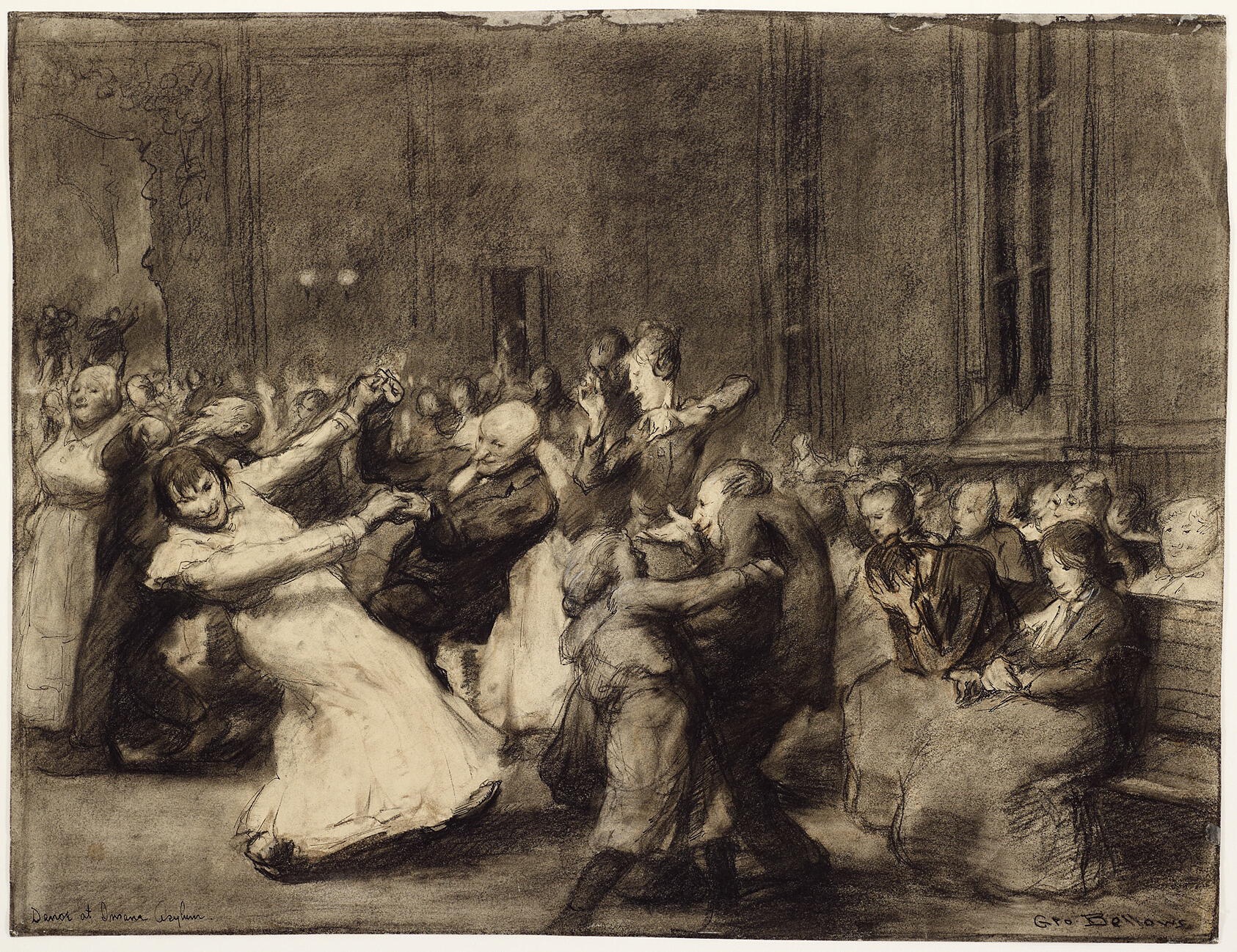MadMen

George Wesley Bellows: Dance at Insane Asylum (1907)
"You eventually became just another part of the problem …"
©2022 by David A. Schmaltz - all rights reserved
Who has not caught themself working for a crazy boss? Who has not found themself laboring within some crazy-making context? Who has not caught themself questioning their own sanity as a result? That questioning one's own sanity seems to be the one reliably meaningful way for validating one's own sanity, for the truly crazy never seem to question their own context, their own motives. So much seems absolutely presumed without questioning, and those presumptions can carry considerable weight and exert much subtle influence. It properly feels as though you never learned the rules and so seem especially unperceptive to yourself. The guy in charge poisons everyone's facility to properly assess reality. This seems primarily the work that MadMen accomplish. They warp the reality around them.
The challenge for those not actually crazy comes with the resulting crazy-making context. How strong might our own ego strength feel? Might it prove powerful enough to survive the cruel undermining, the continuing confusion? We each rely upon an array of feedbacks to inform the correctness of our approaches. We rightly expect nods of appreciation when we contribute something useful and perhaps a quiet disconfirmation when we do something wrong. When engaging with ManMen, the usual connection between action and feedback become disconnected. One might not even notice how few bits of feedback they ever see coming. They seem to come out of the sun or out of nowhere, even, unanticipated and confusing. If you're not confused, you will be in danger of losing your mind.
To find yourself finally imbedded in your career of choice, to find yourself holding a position you long aspired to hold, only to find the situation quite different than you'd imagined, that's an impossible realization. Most will not simply walk away from such an opportunity, regardless of how intolerable the situation at first seems. One believes that they might exert some influence and thereby correct the imbalance, and if one was dealing with simply dysfunction, that could happen. When engaging with a Man Man, however, the likelihood that even a cleaver intervention might change anything will be stunningly miniscule. ManMen do not, as a rule, ever become very influenceable. Sure, one can almost always focus upon pleasing their native vanity, but then it's still them controlling the conversation's content. At best, one might manage to encourage them to select some lesser worst alternative, but never with much conviction and never with any promise of stability. Such decisions might revert backwards any second.
It's what these relationships do to us that ultimately seems most important. Sure the MadMen might hold superior roles, they're often the bosses, and their influence might well seem inviolate. They, after all, seem to define the terms of engagement. Decent people make the descent without noticing that they're necessarily descending. Many will at some point notice the poisonous nature of the engagement then face a terribly personal decision, one rife with unwanted ramifications. Probably the best way to deal with MadMen will always be to flee in any handy opposite direction. But few of us are ever quite that mobile, so we attempt to cope instead. We make up stories to justify our continued presence as if that alone doesn't exert considerable influence upon our souls. We might not acknowledge the depth of our growing guilt by association. Later, anyone might wonder what you thought you were doing hanging around that poisonous place for so long. Did you really think that you were making a difference?
When the prosecutor asks the questions, every response seems lame. The later questions all seem out of context. Yes, I knew what he was doing was wrong. No, I didn't believe that I had much influence, he was determined to do what he did whatever I might have done. Did I think I was the one preventing catastrophe from happening? Not exactly, no, but I felt as if I was somewhat of a decency counterbalance. Later, indecision might prove indistinguishable from collusion. You eventually became just another part of the problem, reputation essentially ruined, while the MadMen marched on.


